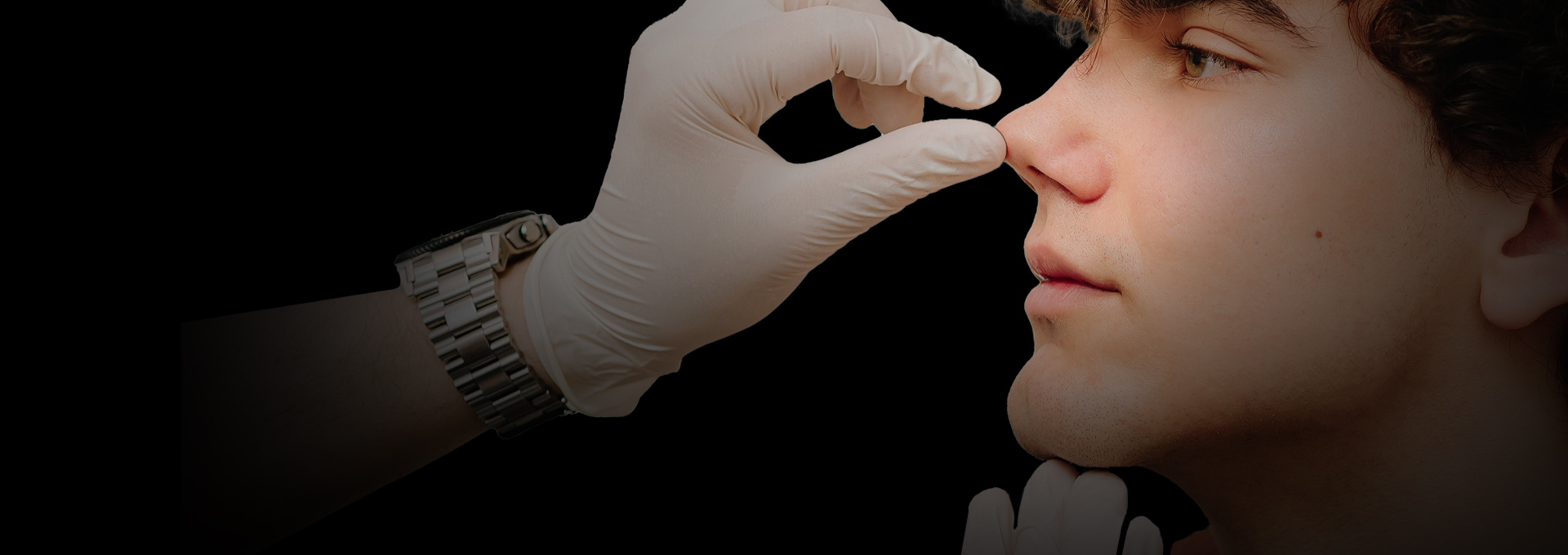Septoplasty
Breathing Easier with a Straightened Septum
What is Septoplasty?
Septoplasty is a surgical procedure performed to correct a deviated septum, the wall of cartilage and bone that separates your nostrils. A deviated septum can cause a variety of problems, including:
- Difficulty breathing: A crooked septum can obstruct one or both nasal passages, making it hard to breathe through your nose.
- Frequent sinus infections: A deviated septum can contribute to chronic sinusitis by preventing proper drainage of mucus.
- Facial pain or pressure: You may experience facial pain or pressure on the side of the deviated septum.
- Nosebleeds: A deviated septum can irritate the nasal lining, leading to frequent nosebleeds.
- Sleep problems: Difficulty breathing through your nose can disrupt sleep, causing you to wake up frequently or experience restless sleep.
- Reduced sense of smell: A deviated septum can interfere with your ability to smell.
Signs and Symptoms of a Deviated Septum
If you experience any of the following symptoms, you may have a deviated septum:
- Difficulty breathing through one or both nostrils
- Frequent sinus infections
- Facial pain or pressure
- Frequent nosebleeds
- Difficulty sleeping
- Reduced sense of smell
Benefits of Septoplasty at Damas
Septoplasty can significantly improve your quality of life by:
- Easing breathing difficulties: A straightened septum allows for improved airflow through your nose.
- Reducing the risk of sinus infections: Proper drainage of mucus can help prevent future sinus infections.
- Improving sleep: Easier breathing through your nose can lead to more restful sleep.
- Enhancing your sense of smell: A corrected septum can improve your ability to smell.
- Reduced facial pain and pressure: Relief from pressure on the nasal passages can alleviate facial pain and pressure.
Septoplasty Procedure at Damas Medical Center
Septoplasty is a relatively simple and safe procedure performed by our experienced ENT specialists at Damas Medical Center in Sharjah. Here's a general overview of the process:
- Consultation: During your initial consultation, our ENT specialist will discuss your symptoms, medical history, and perform a physical examination of your nose. They may also recommend imaging tests, such as an X-ray or CT scan, to confirm the presence and severity of your deviated septum.
- Surgical Planning: Our specialist will develop a personalized surgical plan tailored to your specific anatomy. They will discuss the type of anesthesia used, potential risks and complications, and recovery expectations.
- The Surgery: Septoplasty is typically performed under general anesthesia. A small incision is made inside your nose, allowing the ENT specialist to access the septum. The deviated portion of the septum is then carefully repositioned and secured in its correct position. In some cases, additional cartilage or bone grafts may be needed for support. The incision is then meticulously closed to promote healing.
- Recovery: After surgery, you can expect some swelling around your nose. Pain medication will be prescribed to manage any discomfort. Most patients do not require hospitalization and can go home on the same day.
Important Post-Operative Instructions
Following your septoplasty, it's crucial to follow your doctor's post-operative instructions carefully to ensure optimal healing and minimize complications. Here are some general guidelines:
- Age for Surgery: Septoplasty is typically recommended for patients over 18 years old, as the facial bones and cartilage have finished developing by this age.
- Follow-up Appointments: You will need to attend regular follow-up appointments with your ENT specialist for a month after surgery to monitor healing progress.
- Glasses: Avoid wearing glasses for a month after surgery to prevent putting pressure on your nose.
- Sun Exposure and Sweating: Limit exposure to direct sunlight and strenuous activities that cause sweating for a month after surgery.
- Exercise: Avoid strenuous exercise for a month after surgery to promote healing.
- Smoking: Smoking can impede healing and increase the risk of infection. It's recommended to quit smoking at least a week before surgery.
- Pre-Operative Tests: Blood tests and other laboratory tests may be required before surgery to ensure you are healthy enough for the procedure.
- Pain Management: You may experience mild pain after surgery, which can be managed with medication.
- Swelling and Bruising: Expect some swelling, edema, and mild bruising around your nose for about a week following surgery.

